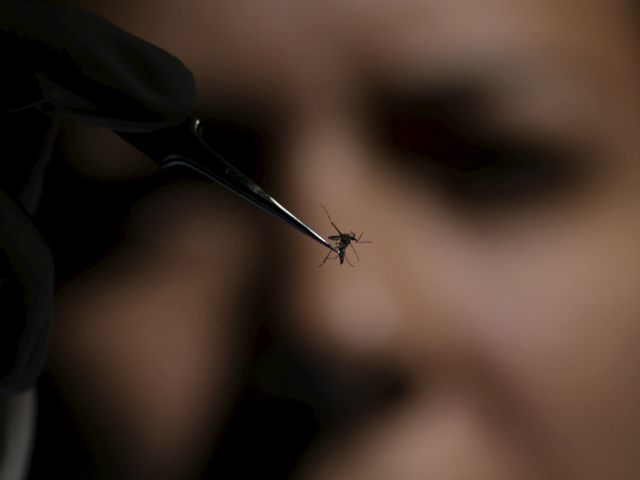Paralympians in Australia expressed fear and concern over Zika mosquitos in Brazil during the 2016 Rio de Janeiro Summer Olympics.
While most people can feel a mosquito bite, paralympians with nerve injuries do not notice the bite or the itch that follows. A brick wall fell and broke wheelchair champion Dani di Toro’s spine when she was 14 years old. The injury resulted in a lack of feeling in her legs.
“September (in Rio) is a whole different climate,” said di Toro. “It’s about getting as much information as we can, work out some measures of what we need to do, then go and do those. For me, I’m absolutely thinking about that. I can cover myself up, stay inside as much as I can. It’s just being smart about it.”
The Paralympics begin on September 7. Brazilian officials have ordered health workers to sterilize Olympic stadiums on a daily basis during the events.
Marathon champion Kurt Fearnley “cannot use his legs, but he can feel them.”
“I survived (the) Delhi (Commonwealth Games); crawled through the Kokoda jungle; been in Middle Eastern refugee camps, so I’ve been up against a few threats,” he told The Australian. “It’s the wet season there (Brazil) now. As far as I understand, September is a whole new ball game.”
Despite the name, the Olympics actually take place during winter in Brazil, so officials hope the cooler weather will kill the mosquitoes and lessen the threat of Zika. Spring formally begins in September.
Dr. Art Caplan of the NYU Langone Medical Center is urging the government and Olympic committee to delay the games.
“Are you really going to try to run the Olympics this August in the middle of a public health emergency when the country can’t afford to finish the buildings, and has got to take on the mosquitos?” he asked on SiriusXM POTUS’s Michael Smerconish Show.
The Australian Olympic Committee encouraged its female athletes to educate themselves about Zika and “consider the risks of competing in the Rio Olympics due to the outbreak of Zika.”
“Any team members who are pregnant at the time of the Games need to consider the risks very carefully before deciding whether to proceed with travel to Brazil,” they said.
Athletes will receive mosquito repellent from officials, who also recommend everyone wear long sleeves when possible.
“The health and wellbeing of all our team members is paramount, especially those females in the team of child bearing age,” declared Australian Olympic Team Chef de Mission Kitty Chillier. “We have a responsibility to ensure that we educate and inform all prospective team members of the potential risks and to put in place whatever mitigating measures we can.”
Patients often experience mild symptoms with Zika, but there have been cases linked to the rare Guillan-Barré Syndrome.
“Guillain-Barré can be a nightmare for those who have it,” Dr. Wellington Galvão, a hematologist in the city of Maceió in northeast Brazil, told the New York Times. “I estimate that Zika increases by about 20 times the probability that an individual can get Guillain-Barré.”
Galvão treated 43 patients with Guillain-Barré in 2015. The country usually averages only 10 to 15 cases a year.
The syndrome struck Patricia Brito, a cashier at a local bakery. One day, she discovered she could not move her legs. Next thing she knew she could not feel “her arms, her face and the rest of her body.” Doctors placed “her on a ventilator in an intensive care unit for 40 days.” Brito attends physical therapy “to avoid using a wheelchair.” There is no cure for the syndrome, but Mayo Clinic describes two treatments:
Plasma exchange (plasmapheresis). The liquid portion of part of your blood (plasma) is removed and separated from your blood cells. The blood cells are then put back into your body, which manufactures more plasma to make up for what was removed. Plasmapheresis may work by ridding plasma of certain antibodies that contribute to the immune system’s attack on the peripheral nerves.
Immunoglobulin therapy. Immunoglobulin containing healthy antibodies from blood donors is given through a vein (intravenously). High doses of immunoglobulin can block the damaging antibodies that may contribute to Guillain-Barre syndrome.
Experts have shown a link between Zika and microcephaly, which occurs when an infant’s brain does not fully form during pregnancy. This leads to serious mental disabilities.
“It’s a very personal decision, but at this moment of uncertainty, if families can put off their pregnancy plans, that’s what we’re recommending,” stated Angela Rocha, the pediatric infectologist at Oswaldo Cruz Hospital.
The U.S. and other countries have advised pregnant women not to travel to Brazil.

COMMENTS
Please let us know if you're having issues with commenting.